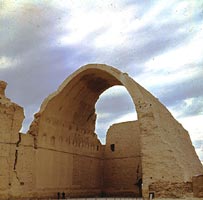CULTURAL TOURISM
Tourism can provide an appreciable means of communication and dialogue
between individuals and civilizations, as well as an economic activity and a
means of presenting and enhancing the heritage.
That is why UNESCO’s endeavors are aimed essentially at helping Member
States to devise cultural tourism policies which can sustain cultural
pluralism and preserve cultural diversity as well as the authenticity of the
living and monumental heritage. Such policies are also aimed at encouraging
greater awareness of cultures, combating cultural prejudice and contributing
to development and the fight against poverty.

The policies and activities devised or put forward by UNESCO in favor of
cultural tourism comply with the principles of the 1970 International
Convention on the Means of Prohibiting and Preventing the Illicit Import,
Export and Transfer of Ownership of Cultural Property and the 1972
Convention concerning the Protection of the World Cultural and Natural
Heritage. Such activities are an integral part of major international
initiatives which – as in the case of the Action Plan of the
Intergovernmental Conference on Cultural Policies for Development
(Stockholm, 1998), the United Nations Year for Dialogue Among Civilizations
(2001), the Action Plan of UNESCO’s Universal Declaration on Cultural
Diversity, and the United Nations Year for Cultural Heritage (2002) – have
so far contributed to defining the major lines of emphasis for action on the
part of the international community in this field.
As regards initiatives aimed at information and training, UNESCO has
organized conferences and seminars at the request of States and in
cooperation with public or private partners and the United Nations system
(e.g. the World Tourism Organization). The outcome of these meetings may
serve as guidance to decision-makers in operational, educational, fiscal and
normative terms. Networks of specialists have been established in the wake
of these meetings at regional and international level, as in the case of the
UNESCO Chairs Network in cultural tourism. The most recent seminars have
taken place in Asunción (Paraguay), in Siem Reap/Phnom Penh (Cambodia),
Damascus (Syria) and Bruges (Belgium). All these meetings resulted in the
preparation of studies and the making of practical decisions in terms of
standards, training and higher education, and the creation of ecotourism
sites.
UNESCO publishes or supports the publication of texts disseminated among
Member States on questions related to cultural tourism and specific study
files.

